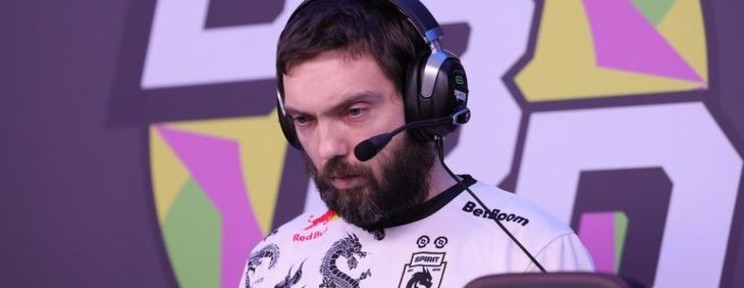In the high-stakes world of professional Dota 2, where millions of dollars and a coveted Aegis of Champions are on the line, the sanctity of rules is paramount. Yet, during The International 2024 (TI14), an unexpected turn of events cast a shadow over the tournament`s integrity, drawing sharp criticism from one of esports` most respected figures.
A Mid-Tournament Curveball
Dmitry “Korb3n” Belov, the esteemed manager of two-time TI champions Team Spirit, recently voiced his profound displeasure with Valve and the TI14 organizers. His grievance? The seemingly arbitrary introduction of a new rule – or, rather, the public disclosure of a pre-existing but previously uncommunicated one – on the third day of the group stage.
The rule in question limited teams to playing no more than two series per day. While seemingly innocuous on the surface, its late-stage implementation had tangible consequences. It directly influenced the playoff seeding, altering the scheduled matchups for powerhouses like Team Spirit and Team Falcons, who were initially slated to face Heroic and Yakutou Brothers, respectively. To announce such a foundational constraint mid-event, effectively changing the competitive landscape after teams had already begun their campaigns, struck Korb3n as nothing short of “complete absurdity.”
Echoes of Past Controversies: The “Pure~” Precedent
Korb3n`s critique wasn`t merely about the inconvenience caused; it resonated with a deeper concern for fairness and consistency in competitive esports. He drew a potent parallel to a contentious incident at The Bali Major 2023 involving Ivan “Pure~” Moskalenko. At that tournament, Pure~`s seemingly minor infraction of opening Twitch during a lengthy game pause escalated into a series of increasingly severe penalties:
- Initially, a bonus time deduction.
- Then, a map loss.
- Ultimately, a full player disqualification.
The “absurdity,” as Korb3n noted, was exacerbated by the perceived disparity in enforcement. In the same timeframe, another player, Neta “33” Shapira, reportedly listening to Spotify during a pause, received a mere 60-second time penalty for his team. This stark contrast highlighted a disturbing lack of standardized, transparent, and consistent rule application—a critical issue that, Korb3n argues, has resurfaced at TI14.
“This is the same level of absurdity as when we all were against BetBoom Team being punished three times in a row at a tournament [for Pure~ opening Twitch during a long pause]. It simply shouldn`t happen, ever.” — Dmitry “Korb3n” Belov
The Imperative of Competitive Integrity
The essence of Korb3n`s argument boils down to competitive integrity. In any professional sport, rules are the bedrock upon which fair competition is built. They must be clearly defined, communicated in advance, and enforced uniformly. When rules are introduced or significantly clarified mid-event, or when penalties for similar infractions vary wildly, it creates an uneven playing field and erodes trust among players, teams, and fans.
Esports has matured into a global spectacle, attracting vast investments and millions of viewers. With this growth comes the expectation of professional conduct, not just from the players, but critically, from the organizers themselves. Dynamic rule adjustments during the pinnacle event of the season, without public announcement or prior notice, can undermine months, if not years, of preparation by the competing teams. It forces adaptation to unforeseen variables, rather than a test of skill under predictable conditions.
A Nuanced Perspective
Despite his pointed criticism of these organizational missteps, Korb3n`s overall assessment of TI14 remains surprisingly positive. He acknowledged that, “however badly he spoke of the tournament,” the event itself turned out to be good. This nuanced view underscores a fundamental truth: while the spectacle and high-level play might captivate audiences, persistent organizational issues can detract from the long-term health and credibility of the scene.
The Dota 2 community, and esports at large, stands at a juncture. As prize pools soar and viewership expands, the demand for ironclad competitive frameworks becomes ever more pressing. Korb3n`s candid observations serve as a vital reminder that for esports to truly flourish, the rules of engagement must be as meticulously crafted and consistently applied as the strategies employed by its champions.

